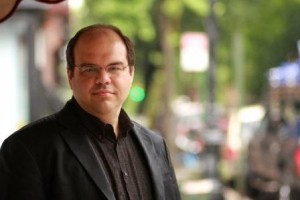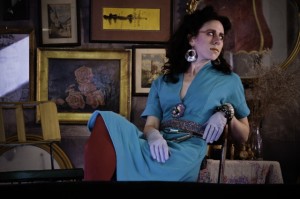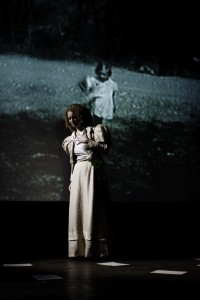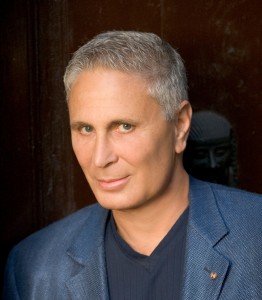FOR IMMEDIATE RELEASE
Press contact: Christina Jensen PR
646.536.7864 | christina@christinajensenpr.com
ACME: American Contemporary Music Ensemble
The Sequenza21 Concert
presented by S21 & Manhattan New Music Project

Tuesday, October 25, 2011 at 7pm
Joe’s Pub | 425 Lafayette Street | NYC
Tickets: FREE. Reserve tickets & tables at 212.539.8778 or www.joespub.com.
ACME: www.acmemusic.org
Sequenza21: www.Sequenza21.com
MNMP: www.mnmp.org
New York, NY – ACME (American Contemporary Music Ensemble) will perform a free concert at Joe’s Pub (425 Lafayette St., NYC) on Tuesday, October 25, 2011 at 7pm presented by online contemporary classical community Sequenza21.com and theManhattan New Music Project. The works to be performed were selected through an open call for scores by ACME artistic director Clarice Jensen, composer and Sequenza21 senior editor Christian Carey, and composer Hayes Biggs.
The concert includes James Stephenson’s Oracle Night (UK); Robert Thomas’ Sixteen Lines (NJ), Jay Batzner’s Slumber Music (MI), Rob Deemer’s Grand Dragon (NY), Sam Nichols’ Refuge (CA), David Smooke’s Requests (MD), Dale Trumbore’s How it Will Go (CA), Laurie San Martin’s Linea Negra (CA), and James Holt’s Nostos Algea (NY). In addition, Christian Carey has contributed an opening work called Wily Overture (the Looney Toons/ACME reference is deliberate) and Hayes Biggs has contributed a closing work.
ACME players for October 25 include Caroline Shaw, violin; Nadia Sirota, viola; Clarice Jensen, cello; Timo Andres, piano; and Jonathan Singer, percussion.
About the Presenters: Sequenza21 contains commentary, reviews, features, a concert calendar, and composers’ forum, and is both a resource and meeting place for performers, composers, and listeners. In 2005, ASCAP awarded Sequenza21 its prestigious Deems Taylor Award.
Manhattan New Music Project (MNMP) seeks to cross traditional musical boundaries and catalyze imaginative projects involving the creation of new work through performances, collaborations and educational activities. Our arts-in-education programs emphasize skills-based, hands-on learning and are custom designed to engage students and educators in the creative process.
About the Composers:
Jay C. Batzner is a composer, sci-fi geek, home brewer, burgeoning seamster, and juggler on the faculty of Central Michigan University, where he teaches music technology and electronic music courses. (www.jaybatzner.com)
Hayes Biggs, born in Huntsville, Alabama and raised in Helena, Arkansas, has taught at Manhattan School of Music since 1992. This season his Psalms, Hymns & Spiritual Songs, composed for soprano Susan Narucki and pianist Christopher Oldfather, and Three Hymn Tune Preludes, commissioned by organist Gail Archer, will receive their first performances. (www.hayesbiggs.com)
Composer Christian Carey is Senior Editor at Sequenza 21 and an Assistant Professor of Music at Rider University. The New York New Music Ensemble, Cassatt String Quartet, Aspen Contemporary Ensemble, Locrian Chamber Players, and others have performed his music. He blogs regularly at File Under ? (www.sequenza21.com/carey)
Rob Deemer, a composer and conductor, is head of music composition at SUNY Fredonia, a member of the composition faculty at Interlochen Summer Arts Camp, and is the composer-in-residence with the Buffalo Chamber Players. He writes frequently about new music for Sequenza21 and NewMusicBox. (www.robdeemer.com)
James Holt is a composer, podcaster, and arts administrator. His music has been performed across the country and internationally including recent performances in New York, Boston, St. Paul and San Francisco. Holt is originally from Seattle and now lives and works in New York City. (www.myearsareopen.net)
Laurie San Martin’s compositions combine her classically trained background with the sounds of today in music for acoustic chamber ensembles and orchestra. She has also enjoyed writing for video, dance and theater. She is currently working with soprano/actor Haleh Abghari on a theatrical work setting Farrid ud-Din Attar’s Conference of the Birds. (www.lauriesanmartin.com)
Sam Nichols is a composer; he teaches composition, music theory, and electronic music at UC Davis. He lives with his wife, the composer Laurie San Martin, and their two daughters in Woodland, CA. (www.samnichols.net)
Composer David Smooke (b. 1969) currently resides in Baltimore, Maryland, where he teaches music theory, rock music history and composition, and chairs the department of music theory at the Peabody Conservatory of Johns Hopkins University. In addition to his composition activities, Smooke founded and co-curates League of the Unsound Sound (LotUS), performs improvisations on toy piano, and writes a weekly column for NewMusicBox, the online magazine of the American Music Center. (www.davidsmooke.com)
British composer James Stephenson (b.1981) studied at the University of York (BA, MA) and University of Manchester (PhD Composition, with Philip Grange and John Casken). His compositions have been performed across the UK and Western Europe, but never previously in America. Stephenson is also an active conductor, improviser and educator, and directs contemporary music ensemble Chiasmus. (www.jamesstephenson.org.uk)
Robert E. Thomas teaches music at The College of Saint Rose in Albany, NY. His music has been presented around the country, including performances at the June In Buffalo and MusicX festivals and at the Conductor’s Institute at Bard. (http://retmusic.com)
An active composer on both coasts, Dale Trumbore has won numerous awards for her compositions. The Kronos Quartet premiered her string quartet as part of their residency at the University of Maryland in 2009. Trumbore currently resides in Los Angeles; she recently graduated with her M.M. in Composition from USC. (www.daletrumbore.com)
About ACME: Led by artistic director and cellist Clarice Jensen, the American Contemporary Music Ensemble (ACME) is dedicated to the outstanding performance of masterworks from the 20th and 21st centuries, primarily the work of American composers. The ensemble aims to present cutting-edge contemporary literature by living composers alongside the “classics” of the contemporary. Known for their work with the Wordless Music Series as well as indie music icons such as Grizzly Bear, ACME’s dedication to cutting-edge contemporary literature extends across genres, and has earned them a reputation among both classical and rock crowds. Time Out New York calls them “one of New York’s brightest new music indie-bands.” ACME has performed at (Le) Poisson Rouge, Carnegie Hall, Brooklyn Academy of Music, Tenri Cultural Institute, the Noguchi Museum, the Whitney Museum, the Guggenheim Museum, the Flea Theater, and Columbia University’s Miller Theatre, among others.
ACME’s instrumentation is flexible, and includes some of New York’s most sought-after, engaging musicians. Current core ACME members include violinists Caleb Burhans, Laura Lutzke, Rob Moose, and Ben Russell, violist Nadia Sirota, cellist and artistic directorClarice Jensen, pianist Timo Andres, and percussionist Chris Thompson.
Since its first New York concert season in 2004, the ensemble has performed works by John Adams, Louis Andriessen, Caleb Burhans, John Cage, Elliott Carter, George Crumb, Jacob Druckman, Jefferson Friedman, Philip Glass, Charles Ives, Donald Martino, Olivier Messiaen, Nico Muhly, Michael Nyman, Steve Reich, Terry Riley, Frederic Rzewski, Arnold Schoenberg, Ryan Streber, Toru Takemitsu, Kevin Volans, Charles Wuorinen, Iannis Xenakis, Chen Yi, and more.
ACME does not subscribe to one stylistic movement or genre; its concerts present all genres of contemporary music in the same light and with the same conviction. Time Out New York reports, “[Artistic Director Clarice] Jensen has earned a sterling reputation for her fresh, inclusive mix of minimalists, maximalists, eclectics and newcomers.”
ACME has also collaborated with bands and artists including Grizzly Bear (in concert and on their best-selling album, Veckatimest, featuring strings by Nico Muhly); electronica duo Matmos (on The Rose Has Teeth In The Mouth Of A Beast, with strings by Jefferson Friedman); Craig Wedren (former frontman of the avant-rock band Shudder To Think); prepared-pianist Hauschka; composers/performers Jóhann Jóhannsson, Max Richter, and Dustin O’Halloran, and Micachu & The Shapes.
Other recent highlights include ACME’s Carnegie Hall debut performing the world premiere of Timo Andres’ Senior with the New York Youth Symphony in Stern Auditorium; opening the TriBeCa New Music Festival at the Flea Theater performing works by young American composers Jefferson Friedman, Caleb Burhans, Ryan Streber and Nico Muhly; and a month-long residency at the Whitney Museum presented by the Wordless Music Series, for which ACME tailored a contemporary classical program to complement the indie-rock or electronica performer sharing the concert.
In addition to a January tour with chart-topping pianist Simone Dinnerstein, 2010 concert highlights included a performance of Gorecki’s String Quartet No. 2 opening for Polish electroacoustic musician Jacaszek; a concert of music by John Luther Adams and Kevin Volans; and a performance of the music of Louis Andriessen, all at (Le) Poisson Rouge. In spring 2011, ACME performed with the Brooklyn Youth Chorus at St. Ann’s Warehouse in Nico Muhly’s new work Tell the Way in February; at The Kitchen during April’s 21c Liederabend produced in collaboration by Beth Morrison Projects, Opera On Tap, and VisionIntoArt; and as part of the MATA Festival in May.
ACME has planned an exciting and ambitious season in 2011-2012. The season opened in September, with performances presented by the Wordless Music Series in Boston at Jordan Hall and at Harvard’s Sanders Theatre, opening two sold-out concerts by American rock singer and guitarist Jeff Mangum with performances of Gavin Bryars’ Jesus’ Blood Never Failed Me Yet and music by Erik Satie. In October, ACME performs works by American composers John Luther Adams, Jacob Druckman and Alex Freeman in Columbia, South Carolina at the University of South Carolina. In March 2012 presented by Stanford Lively Arts, ACME will give the world premiere of a new work commissioned from Ingram Marshall for ACME with acclaimed male a cappella group Lionheart, paired with Phil Kline’s beloved John the Revelator. That same month, ACME will also perform The Music of Phil Kline with legendary and Grammy-nominated vocalist Theo Bleckmann, an evening of new songs and chamber music composed by Kline as well as selections from past favorites Zippo Songs, John the Revelator, and Fear and Loathing at The Flynn Performing Arts Center in Burlington, VT.
ACME was founded in 2004 by cellist Clarice Jensen, conductor Donato Cabrera, and publicist Christina Jensen. The ensemble is managed exclusively by Bernstein Artists, Inc.
# # #














